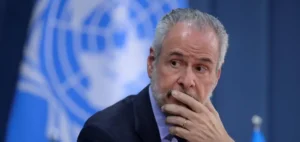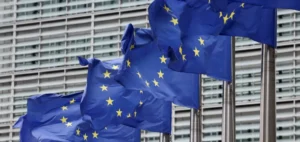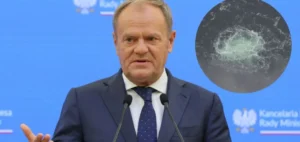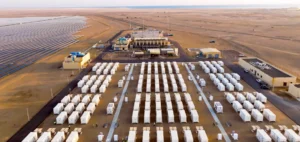Mexico, under President Claudia Sheinbaum, recently decided to provide energy support to Cuba. This aid, given the severe humanitarian crisis on the island, aligns with Mexico’s historical opposition to the U.S. economic embargo. In a press conference, Sheinbaum stated that this act of solidarity, despite receiving criticism, is driven primarily by humanitarian reasons.
A Mexican ship carrying approximately 400,000 barrels of oil departed from a Mexican port on Monday to reach Cuban shores, according to local sources. While Sheinbaum did not specify the exact amount of oil sent, she noted Mexico’s oil production capacity, estimated between 1.6 and 1.8 million barrels per day. This initiative aims to meet Cuba’s growing needs, facing severe fuel shortages essential to its electric grid.
An energy crisis worsened by U.S. sanctions
Cuba’s energy situation has critically worsened in recent weeks. On October 18, a major breakdown caused a collapse of the national electric grid, plunging the island into darkness for four days. The fuel shortage, exacerbated by the tightening of the U.S. embargo, forced Cuban authorities to adopt drastic measures, with frequent and planned power outages.
Due to the economic embargo imposed since 1962, the island struggles to secure the necessary supplies to maintain its energy infrastructure. Mexican President Claudia Sheinbaum stated that the aid aims to mitigate this situation and reaffirm Mexico’s historical stance against sanctions that directly impact the Cuban population.
Outdated facilities and increased energy dependence
Beyond the embargo, Cuba faces challenges due to its aging energy infrastructure. The country relies mainly on eight thermoelectric power plants, whose critical condition limits their ability to meet energy demand. Over the past two years, oil imports from Venezuela, a long-standing ally, have significantly decreased, worsening the current crisis. This situation renders the island vulnerable to fluctuations in fuel supply, vital to its economy.
Cuban Energy Minister Vicente de la O Levy recently described the situation as “tense,” though different from the scenario that led to the widespread blackout. According to him, the electric production currently meets only 50% of peak demands. However, he assured that contracts have been signed to secure regular fuel deliveries and minimize gradual outages in the coming days.
Support continues despite criticism
Amid this critical situation, Mexico continues to show support for Cuba, despite objections from some sectors. President Claudia Sheinbaum asserted that Mexico would maintain its support for humanitarian reasons and to underscore its opposition to the embargo, emphasizing that this position is not new for the country. She highlighted the importance of solidarity in a context where the Cuban population faces an unprecedented economic crisis.
Inaugurated last October, Claudia Sheinbaum also announced her intention to participate in the G20 summit in Brazil in November, marking a shift in Mexican diplomacy. Her predecessor, Andres Manuel Lopez Obrador, rarely traveled abroad and had never attended a G20 summit, focusing primarily on domestic issues.
A major challenge for Cuba
With shortages of essential goods, soaring inflation, and recurrent power outages, Cuba is undergoing its worst economic crisis in three decades. This energy support from Mexico, though limited, represents valuable assistance for the island, which is striving to stabilize its electric grid while facing severe restrictions due to external and internal factors.
Mexico’s gesture could set a precedent in humanitarian support and energy cooperation within a region marked by deep economic disparities and fragile diplomatic alliances. The continuation of this aid will likely depend on logistical constraints and Mexico’s internal priorities, but it already highlights a new dynamic in Latin American relations.






















